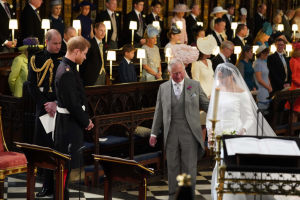Prince Harry and Meghan Markle’s departure from the royal family left a lasting impact, marked by accusations, revelations, and strained relationships. Their Oprah interview and Harry’s memoir, “Spare,” laid bare the tensions and grievances they harbored against the royal institution.
Meghan’s disclosure of feeling suicidal during her time as a working royal shed light on the lack of support she perceived from the family, including Prince Charles. Despite his reported efforts to reach out post-interview, Meghan expressed disappointment with his response to her concerns about unconscious bias within the family.
Before their wedding, Meghan’s friends cautioned her about the relentless media scrutiny and warned against marrying into the royal family. This scrutiny, coupled with racist remarks directed at their son, Archie, fueled the couple’s decision to step back from royal duties.

In defense of their actions, Harry emphasized the distinction between unconscious bias and overt racism. Their allegations have sparked a debate about the boundaries of familial loyalty and accountability.
Despite attempts at reconciliation, the divide between the Sussexes and the royals remains palpable. Meghan’s decision not to attend Prince Charles’s coronation further fueled speculation about the depth of the rift.
The saga of Harry and Meghan’s departure from the royal fold continues to captivate public attention, prompting reflection on the complexities of duty, identity, and personal agency within the royal family.